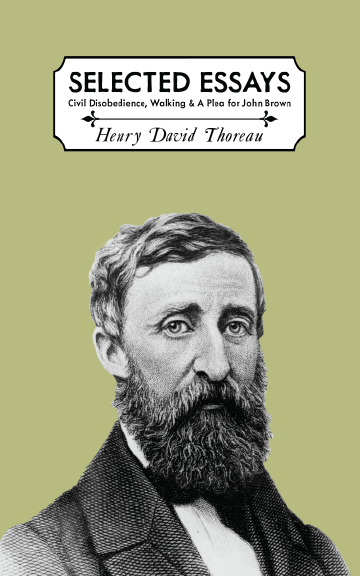Selected Essays
Selected Essays
One of America’s best-known writers, Henry David Thoreau (1817–1862) was an essayist, poet, philosopher, and naturalist. He was also a noted abolitionist and an important figure in the transcendentalist movement, writing important works on both topics. Thoreau believed that humans derive great value from time spent in the wilderness, which led him to a pivotal two years living in a cabin near Walden Pond in Massachusetts. There, he immersed himself in the natural world and spent his time writing detailed observations about it, along with essays on other topics. His most famous work, Walden, is a recounting of this time.
Civil Disobedience
After being jailed for refusing to pay a poll tax, Thoreau argued in this essay that people are compelled to break the law when the government is unjust. Future nonviolent leaders like Dr. Martin Luther King, Jr. have drawn inspiration from this work.
Walking
Thoreau philosophizes that humans truly belong to nature instead of society. He encourages readers to spend time in nature and criticizes the increasing private ownership of natural areas.
A Plea for John Brown
John Brown led an unsuccessful anti-slavery rebellion that resulted in his arrest and execution. Thoreau defended John Brown, extolling his bravery.



